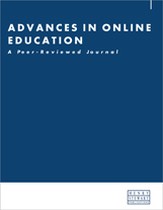Challenge-based learning in online settings : Perspectives from students and teachers in the Energy for Circular Economy Master’s programme
Abstract
With globalisation and digitalisation, new skill sets are increasingly required of graduated engineers. Often referred to as ‘21st-century skills’, these include teamwork, leadership, digital literacy and communication. Research has shown that active learning methods such as problem-based learning (PBL) and project-based learning (PjBL), which emphasise ‘learning by doing’, are more effective in shaping competent engineers. More recently, challenge-based learning (CBL) has emerged as a growing pedagogical approach. This study evaluates the integration of CBL within the online Master’s programme in Energy for Circular Economy (MECE) in Sri Lanka. By examining the social dimension of the online learning environment, the study aims to deepen understanding of students’ online learning experiences, including development of their habits of mind, to support their progression throughout the programme. An online survey was conducted among first-year students enrolled in the challenge-based course on Entrepreneurial and Innovative Challenges in the Field of Energy. A complementary survey was administered to the teachers serving as mentors to capture their perceptions of coaching and mentoring within the CBL framework. Overall, students regarded the course and its CBL approach as a unique and transformative experience that significantly enhanced their critical thinking, teamwork, communication and leadership skills compared to previous courses. Student feedback also highlighted the considerable potential of the online environment for hosting interactive and highly valued workshops. Additionally, resources such as recorded sessions were seen as contributing to in-depth learning by addressing language barriers and accommodating time zone differences, making the learning experience more inclusive. A recurring challenge identified was the limited availability of teachers and mentors to supervise student teams, which can significantly hinder the successful implementation of the CBL approach. The findings underscore the importance of preparing educators for their evolving roles as coaches and facilitators in CBL, emphasising the need for targeted training to help them transition effectively into these roles.
The full article is available to subscribers to this journal (subscription is free).
Author's Biography
Valentina Zaccaria has a PhD in mechanical engineering with specialisation in energy systems. She has more than 10 years’ experience in research on sustainable energy. Valentina works as an Associate Professor at Mälardalen University (MDU) where she engages with advanced pedagogical methods for campus-based and digital learning. She has led and participated in several educational projects with national and international partners and contributed to the development of the first challenge-based online programme in engineering.
Bozena Guziana has a PhD in environmental engineering and works as a Senior Lecturer at Mälardalen University (MDU). With more than 20 years’ experience in teaching both on campus and online, as well as in research on topics related to sustainable development and academic skills, she currently serves as the coordinator for the Master’s programme in environmental engineering for sustainable development, which is offered online. Bozena has a long and deep interest in pedagogical issues and also serves as a pedagogical coordinator at the School of Business, Society and Engineering at MDU.
Nihal S. Senanayake earned his Bachelor’s degree in mechanical engineering from the University of Moratuwa, Sri Lanka, in 1985. He completed his PhD in food processing machine development at Cranfield University, UK, in 1996. Currently, he is a Professor of Mechanical Engineering at the Open University of Sri Lanka (OUSL). His research interests centre on the sustainable use of energy in manufacturing industries and sustainable power generation. Additionally, Nihal is actively involved in research related to open and distance education (ODE), particularly in engineering education, educational pedagogies, curriculum development, digital education, course delivery and assessment practices.
Ruchira Abeyweera holds an international Master’s degree in sustainable energy engineering from the Royal Institute of Technology (KTH) in Sweden, where he conducted significant research on biomass gasification for heat and power generation. He currently serves as the Programme Manager for the MSc in Energy for Circular Economy (MECE) at the Open University of Sri Lanka and has held leadership roles in several international projects, including the EUSL-Energy Project. Ruchira’s research focuses on sustainable energy solutions, particularly high-temperature air/steam gasification of biomass, as well as renewable energy systems, waste management and innovative strategies for improving energy efficiency in power generation processes.
Citation
Zaccaria, Valentina, Guziana, Bozena, Senanayake, Nihal S. and Abeyweera, Ruchira (2025, June 1). Challenge-based learning in online settings : Perspectives from students and teachers in the Energy for Circular Economy Master’s programme. In the Advances in Online Education: A Peer-Reviewed Journal, Volume 3, Issue 4. https://doi.org/10.69554/KNBG4401.Publications LLP
